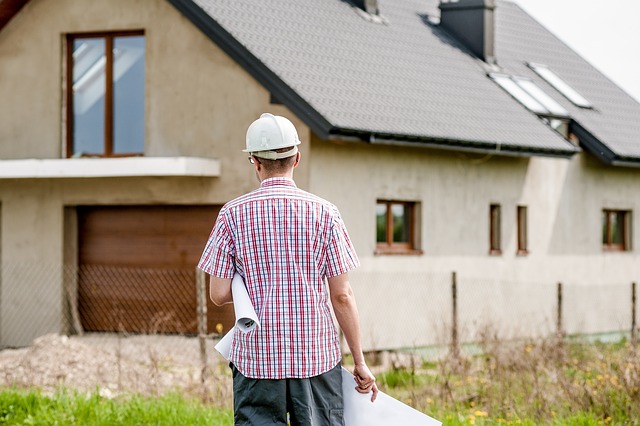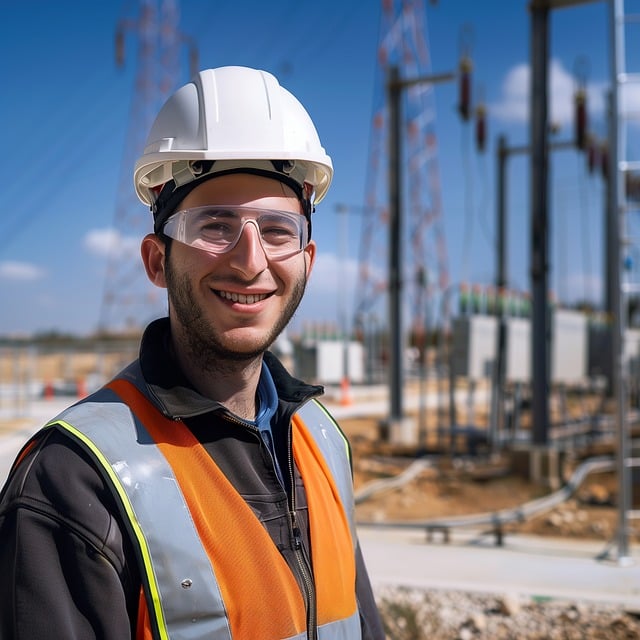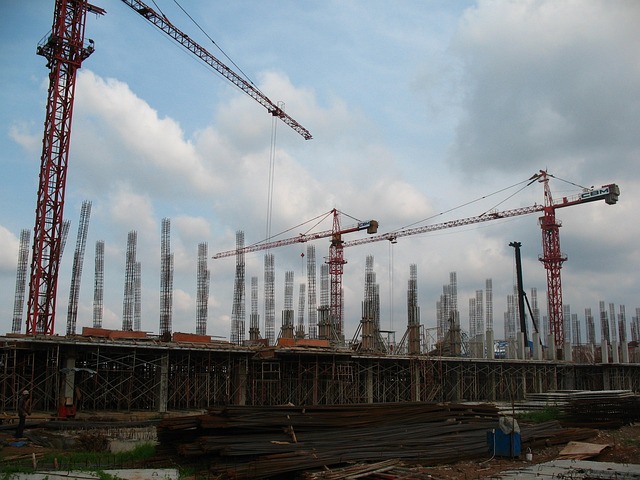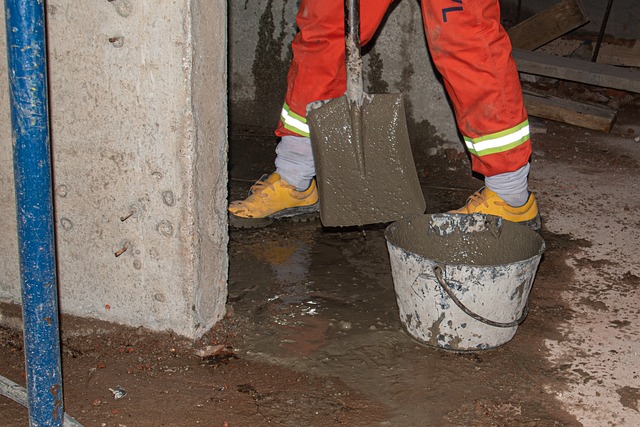Roofing contractors are vital professionals who maintain and enhance structural integrity and aesthetic appeal of residential and commercial properties using diverse materials and techniques. Their work involves meticulous planning, adherence to building codes, and effective project management for high-quality roofs that protect buildings, improve energy efficiency, and boost curb appeal. Commercial roofing focuses on durability, efficiency, and code compliance, while residential roofing prioritizes aesthetics and shelter. When choosing a contractor, prioritize expertise, reputation, licensure, insurance, and experience in both types of projects to ensure adaptability and high-quality work. They face challenges like regional building codes, material availability, weather conditions, and skilled labor shortages, but adhere to strict safety protocols for worker and public protection. Future trends include smart roofs with IoT sensors, digitalized contracting platforms, and blockchain technology for enhanced transparency and automation in payment processing.
Roofing contractors play a pivotal role in safeguarding our homes and businesses from the elements. Understanding their multifaceted roles is essential for anyone looking to maintain or replace a roof. This article delves into the distinct worlds of residential and commercial roofing, exploring key skills, selection criteria, common challenges, safety best practices, and emerging technologies shaping the industry. Whether you’re a homeowner or a business owner, knowing how to choose the right roofing contractor is crucial for a durable and safe roof.
Understanding the Role of Roofing Contractors

Roofing contractors play a vital role in ensuring the structural integrity and aesthetic appeal of residential and commercial properties. They are the experts entrusted with designing, installing, repairing, and maintaining roofs, which serve as the first line of defense against the elements. These professionals possess the knowledge and skills to select appropriate roofing materials, from traditional shingles to modern metal tiles, catering to diverse architectural styles and climate considerations.
Their work encompasses not just the physical installation but also meticulous planning, precise measurements, and adherence to local building codes. They navigate complex projects, managing teams of workers, scheduling, and sourcing materials to deliver high-quality roofs that protect buildings from weather damage, improve energy efficiency, and enhance curb appeal. Roofing contractors are thus indispensable in maintaining the overall value and longevity of structures across various sectors.
Types of Roofing: Residential vs Commercial

When it comes to roofing, residential and commercial projects have distinct needs due to differences in scale, design, and functionality. Residential roofing typically involves smaller areas, focusing on aesthetics and providing shelter for individual homes. This often translates to a wider variety of styles, from traditional shingles to metal or flat roofs with complex designs. The goal is to create a visually appealing exterior that complements the home’s architecture while standing up to varying weather conditions.
In contrast, commercial roofing contractors deal with larger, more complex structures. Industrial buildings, offices, and retail spaces demand robust, low-maintenance roofing solutions designed for longevity and functionality. These roofs often feature flat or slightly sloped surfaces, optimized for efficiency and easy access for repairs and maintenance. Commercial projects prioritize durability, water tightness, energy efficiency, and compliance with building codes over aesthetic appeal.
Key Skills and Qualifications to Look For

When hiring roofing contractors, it’s crucial to assess their skills and qualifications to ensure top-quality work. Look for professionals who possess a comprehensive understanding of various roofing materials, including asphalt shingles, metal, tile, and flat roofs. Knowledgeable contractors should be able to offer expert advice on the most suitable options based on your location, climate, and budget. Additionally, they must demonstrate proficiency in reading blueprints, as this is essential for accurately interpreting architectural designs and ensuring the roof’s structural integrity.
Beyond technical expertise, roofing contractors should have strong communication skills, enabling them to explain complex processes clearly. They should also be licensed and insured, protecting you from potential liabilities. Verifying their membership in reputable trade associations, such as the National Roofing Contractors Association (NRCA), adds credibility to their claims. Experience in handling both residential and commercial projects is a significant plus, indicating their adaptability to different scales and requirements.
The Selection Process: Choosing the Right Contractor

When selecting a roofing contractor, understanding their expertise and reputation is key. Begin by requesting references from previous clients to gauge their satisfaction levels and assess the quality of work. Check if they are licensed, insured, and bonded, as this ensures compliance with local regulations and provides financial protection for your project. Reputable contractors will gladly provide proof of these aspects, demonstrating their professionalism and commitment to quality.
Additionally, consider the contractor’s experience in both residential and commercial roofing. Look for specialists who can adapt their services to meet diverse needs, offering tailored solutions for various structures and styles. A well-rounded contractor with a proven track record in multiple projects is more likely to deliver exceptional results and ensure your roof installation or repair process runs smoothly.
Common Challenges Faced by Roofing Contractors

Roofing contractors often encounter various challenges that can impact project timelines and overall success. One significant hurdle is navigating complex building codes and regulations, which vary across regions. Staying up-to-date with these guidelines is crucial to avoid costly delays or penalties during construction or renovation projects. Many roofing jobs also require specialized equipment and materials, ensuring access to reliable suppliers is essential for efficient work.
Another common challenge is managing weather conditions, especially in areas prone to extreme climates. Robust planning and flexible scheduling are necessary to cope with unexpected delays caused by heavy rain, snow, or high winds, which can disrupt progress and increase project costs. Additionally, finding and retaining skilled labor is a persistent issue, as the demand for qualified roofing professionals often exceeds supply.
Safety Measures and Best Practices on Rooftops

When it comes to safety measures on rooftops, both residential and commercial roofing contractors must adhere to strict best practices to ensure the well-being of their workers and the general public. This includes wearing appropriate personal protective equipment (PPE), such as hard hats, fall arrest systems, and non-slip boots, especially when working at heights. Regular safety inspections of tools, ladders, and access points are crucial to prevent accidents and ensure all equipment is in good condition.
Additionally, roofing contractors should follow established safe work procedures, including proper ladder placement, secure rooftop edge protection, and regular communication among the team to avoid potential hazards. Staying up-to-date with safety regulations and training programs is essential for any professional roofing contractor. By implementing these measures, they can minimize risks, enhance worker safety, and deliver high-quality roofing services.
The Future of Roofing Contracts and Technologies

The future of roofing contracts is set to be transformed by innovative technologies, leading to enhanced efficiency and better outcomes for both residential and commercial projects. Smart roofs, equipped with sensors and IoT devices, promise to revolutionise maintenance by providing real-time data on roof conditions, from leak detection to energy performance monitoring. This predictive approach allows Roofing Contractors to proactively address issues, reducing costly emergency repairs and prolonging the lifespan of rooftops.
Digitalisation is also streamlining the contracting process itself. Online platforms facilitate seamless communication, quote generation, and project management, eliminating paperwork and delays. Blockchain technology is emerging as a game-changer in contract execution, offering enhanced transparency, security, and smart automation for payment processing, ensuring trust and efficiency throughout the roofing lifecycle.
